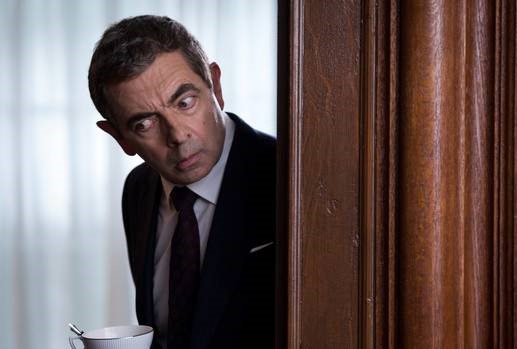Budgets Can Effect a Movie's Quality
Budgeting movies is a fine line to tread, with more examples where spending too much or little drastically effects a film's artistic and entertainment quality
 |
Rowan Atkinson as Johnny English in 'Johnny English Strikes Again' (CREDIT: Universal/Working Title)
|
by Jack Linsdell
The process of movie funding and budgets is perhaps one of the most quietly contested issues in the modern filmmaking industry. Films are first and foremost commercial opportunities for studios to earn as much as they can with the least amount of investment. That investment is a complicated process, one which can be mostly self funded by a single studio, or one where many different production companies chip in to help out financially speaking. What is assured is that the blockbuster movies most often get the biggest investment because they are by default or design the biggest movies.
Look, I believe Hollywood gets budgeting correct about 50% of the time. We have movies like Bumblebee whose $125 million budget was appropriate for the scale, narrative events and the audience demand for the movie where an over/under $400 million global cume could count as relative success and push it into the profitability zone. And, then we have movies like Tomorrowland or Mortal Engines which cost over $100 million and fail to even get past $150 million global.
Often when we talk about bad budgeting, we're referencing those films that were just too expensive to justify themself commercially or were presumed to have a greater audience demand to satisfy that level of investment. However, what we often don't discuss is how the needle can move the other way too. Indeed, (although rarely) some flicks can be disadvantaged from a lack of budgeting. Take for example last year's Rowan Atkinson-led threequel Johnny English Strikes Again. That David Kerr-directed spy/comedy had a "mere" $25 million budget which was a big come down from its two predecessor's $40-45 million budgets. Now considering all three movies ended up grossing the exact same $158-160 million, I expect Universal and Working Title either made an error in judging the demand for a third film (coming seven years after Johnny English Reborn) or just got greedy and thought we can save our self $20 million and have a few million more in profit. Okay, fine. It's the way Hollywood is because at the end of the day the film industry is a business. That's why it's known as the film business. However, one of the biggest flaws was that it's felt and looked more tacky, cheap and restrained compared to the previous two flicks. We had whole submarines and a Scottish castle and lake designed completely as visual effects for the third act when either the story should have been more contained for the smaller budget they were given or they should have had more money to allow them to do it well.
What comes to mind here is Paul Greengrass' Green Zone whose budget got increased to $100 million after he decided to re shoot the ending to make it a much better, coherent, grandeur and more exciting finale. He was given the extra $10-20 million which allowed the ending action scene to be done right and for real and truly it becomes one of the best finale action beats to a modern day action movie. So, therefore a lack of budgeting can be just as harmful as too much investment. I stand by my mantra that had Sam Mendes not been given $250-300 million for Spectre (one of the most expensive films ever made) he wouldn't of had the freedom to just cram a hundred million wacky and overly fantastical locations and action scenes into the movie just because he could. Maybe that one could have turned out better had the budget stayed around $150 million. Indeed if Tom Cruise and Christopher McQuarrie can make Mission: Impossible - Fallout with all practical stunts and action at "only" $178 million then why does Craig and Mendes need almost double that to make a Bond flick that feels like its entirely made in a computer and thus feels like one of the most expensive video games ever made.
Okay, so rant over but still...you see my point. The fact is that I understand budgets are a very fine line to tread and sometimes judging audience demand when fewer people are going to the cinema and trends are changing is a difficult thing. However, contrary to popular belief it's clear that movies can be ruined by having too little or too much money invested into them. Yes, Green Zone had an extra $20 million investment which meant that it's $100 million global cume only matched it's new $100 million budget, but it still earned back its production budget meaning it's not at a commercial loss it just didn't make anyone already rich that but richer. But it paid off and the film is much better for it because it was in the end well budgeted.
But as long as studios want to make the maximum amount of profit for the smallest amount of investment, movie budgeting will continue to remain a contentious issue for audiences, filmmakers and those that care about such things like me.


Comments
Post a Comment